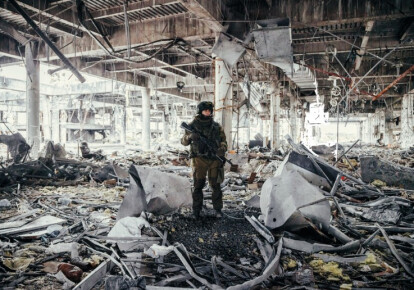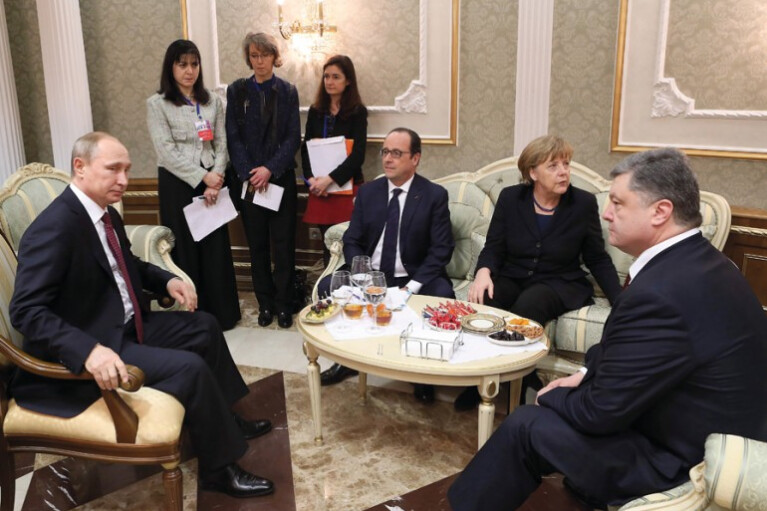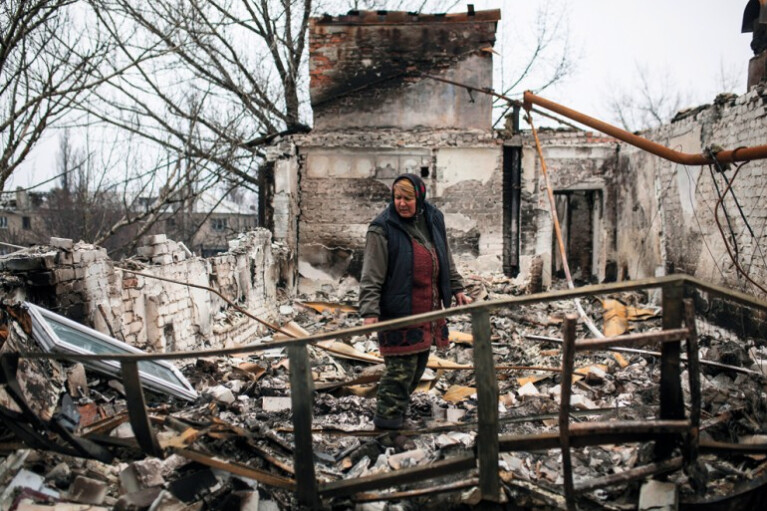Neither peace nor war. How long the Minsk Arrangements will last and whether Ukraine needs them

The Minsk stalemat. 5 Years of Ukraine Rescue and the Donbas Loss
September 5, 2019 is the fifth anniversary of the first OSCE-mediated Minsk Arrangements reached between Ukraine and the Russian Federation. All these five years the Ukrainian society has been debating about the feasibility of these arrangements: whether Ukraine could do without them and what consequences for Ukraine have prevailed - positive or negative.
But it is too early to make final conclusions. We have the counterintuitive fact: although the Minsk Arrangements are in effect formally and serve as a basis for the Minsk process, as well as for the negotiations in the Normandy format (Ukraine, Germany, France, Russia), in fact, these agreements do not work as a plan for achieving peace in the Donbas. Within five years none of the clauses of the first and the second Minsk Arrangements in terms of restoring the Ukrainian control over the entire territory of Donetsk and Luhansk regions has been fulfilled.
Only the cease-fire clauses have been implemented, but they are also constantly being violated by the Ukrainian occupation forces.
Volodymyr Zelensky's victory in the presidential election in Ukraine has led to the expectations of rapid changes and hope that the pause in peace process in the Donbas will be lifted. In recent weeks this perspective has been underpinned by two topics that have gained widespread media coverage: the exchange of prisoners of war between Ukraine and Russia and the top-level Normandy format negotiations.
"The Minsk Stalemate. 5 Years of Ukraine Rescue and the Donbas Loss" research was prepared спільно by the Center for Study of Russia and the Occupied Territories and by the "Business Capital" Publishing House. The research analyzes in detail pressing the issues related to the prospect for peace in the Donbas: what is wrong and why with the Minsk Arrangements; what Ukraine, Russia and the West have lost due to the five-year conflict in the Donbas; how Russia, Ukraine and the West have used five years of the Minsk break; what wishes and opportunities of Zelensky's team are to make the "Donbas breakthrough"; how long the Minsk Arrangements will be in effect and whether they are needed for Ukraine.
We remind that our previous researches concerning the problem of the occupied territories are the following ones: "The Occupied Donbas: Economy, Demography, Groups of Influence. The Strategies for Ukraine" (released in October 2017) and "The Fifth Year of the War: The New Challenges for Ukraine" (released in October 2018).
Why the non-working arrangements are beneficial for Ukraine
The package of documents known as the "Minsk Arrangements" (hereinafter referred to as the MA) appeared in a situation where both Kyiv and Moscow needed to show willingness to negotiate while their standpoints diverged diametrically. As a result, both parties accepted obligations they could not and did not intend to carry out. But at a certain stage Ukraine has managed to deliver on its obligations under the MA, while placing on record russia's failure to fulfil its own. That allowed to bound the EU sectoral sanctions against Russia to its failure to comply with the MA, and to seek for the sanctions extension, appealing to the fact that the MA same as before had not been fulfilled by Russia.
However, the MA to which the sanctions have been anchored are not very reliable in this capacity since they do not regulate the order of their implementation clause by clause, and Ukraine has not fulfilled its obligations fully as well. At present, the parties are in a mutual stalemate situation: it is impossible to execute the "Minsk", it is impossible to revise the "Minsk", it is impossible to leave the "Minsk". However, the weakness of the Ukrainian position is complicated by the fact that the approval of certain legislative changes which the MA are hinting at, can weaken legitimacy of the current Ukrainian authorities (in particular, potential special election in the occupied territories, or manipulating this issue).
What changed with the arrival of Zelensky
First of all, the nature of the Ukrainian authorities changed and it became even more populist. The lack of visible strategy, the contradictory statements and actions of the new administration, the situation of everlasting show when the president's statement, made publicly, becomes a self-sufficient step that does not imply further actions - all this is not a consequence of inexperience of the new team.
Accordingly, Zelensky's team has nothing like a comprehensive strategy. This feature of the new authorities is deeply conceptual. "Collective Zelensky" seeks to address only one task: to please public every moment of time throughout the governance term. This releases him from responsibility for any failure since it puts responsibility on the shoulders of favourably disposed majority, and at the same time offers ample opportunities for non-use of public power for the benefit of the team members and other stakeholders of the authorities.
Such an instrumental approach led to eclectic composition of Zelensky's team and the "Servant of the People" ("Sluha Narodu") faction at the Verkhovna Rada, although, at first glance, everything seems to be the opposite: the lack of strong team generates situational response instead of a strategy. But it is not the case. Zelensky's tactics on his way to power from the very beginning provided the possibility to have a set of figures for every taste and need in stock, in order to introduce into the game at the right one moment of them that is needed here and now, replacing it with another one which fits the next moment more.
Such an approach, natural for showmen and performance salesmen who, in fact, make a backbone of Zelensky's team, can be considered as a leading trend in world politics now. By treating voters as show-goers, they have studied their needs and tastes well.
The modern Ukrainian society suffers from a whole range of the post-Soviet illnesses, including low social responsibility and lack of unity. Only spontaneous anarchism, coupled with deep disregard for any power and state that have become an organic part of the Ukrainian national character, still keep us from the following deadlocked road of establishing an authoritarian regime, typical for the post-Soviet environment.
In these circumstances, voting for Zelensky and his "Servant of the People" became, though unpleasant for a part of the society, but natural reaction to the over-exploitation of the patriotic slogans by the previous authorities coupled with the limitated real reforms. The narrowness of the corridor of opportunities where that regime had been trapped, was not important in the eyes of the majority of the population who did not want and, in the long run, could not understand such nuances. The only thing that made sense was a result that turned out to be not convincing enough, and the reasons for it did not play any role.
On the other hand, previous generations of the Ukrainian authorities have also widely used dishonest voter manipulation. Zelensky's team did not bring new to anything that practice, but only accomplished with the highest score the task that its competitors were able to do merely so-so, the way amateurs do, and with an eye on the fundamentals and red lines, unnecessary in the current situation. The needs of public whose voices Zelensky was able to rely on, as a whole, boil down to the wish that "everything be like it had been before the war" which, крім того, seems not to be quite a war. But these wishes include a number of internal contradictions, and this leads to a gradual change of sentiments, and, as such, to the situational actions of Zelensky's team. Finally, in addition to the spectators, the president must also honor those sitting in the VIP lounges.
Chaos vs chaos
One of the most important VIP spectators of this reality show is Ihor Kolomoisky who does not to dictate Zelensky's team how to behave in any way, but only has a certain influence on it. Such a self-restraint will allow him to distance himself from the team in the future when, instead of applause, they start getting the hiss of a crowd. This payoff is initially embodied in Zelensky's concept of being in power, since the performance offered in lieu of bread, and in our case instead of real reforms, will inevitably make people bored cause and irritation to spectators. However, Kolomoisky is not the only one capable of influencing Zelensky's team; he himself falls under influence as well.
But the resultant "collective Kolomoisky", influencing both directly and through the audience in the hall, is not currently interested in surrendering to Russia. And in the absence of a strong team capable of delivering clear strategy based on society support, chaotic unpredictability becomes perhaps the best method of defense.
Generating chaos, Zelensky's team is able to upset Moscow's game for a while, using, as such, its, Moscow's, weapon. Today, given the current situation both within and around Ukraine, this is by far the best possible strategy. To re-phrase Darwin, we can say that not the strongest or the smartest gets the best chance for survival, but the one who is the most adaptable to changes, while creating maximum problems for competitors.
Fluctuations near the equilibrium point
In practice this is what it looks like: tumultuous and chaotic imitation of activity in all threatening areas. In terms of relations with Russia, Zelensky demonstrates readiness for peacemaking and concessions, creating powerful information noise, primarily aimed at the West, and testing the reaction of the Ukrainian society to various offers, cutting off the options that may provoke indignation.
And since Russia and its puppets see weakness in these concessions, Zelensky's team is preparing to move to another tack when, based on the facts, they will be able to talk about impossibility anything to change in the Donbas due to Moscow's unconstructive standpoint and about the need to increase pressure on it through sanctions as well. In general, such a swing from unfreezing to freezing and back seems reasonable. Of course, under condition that the presidential team will refrain from trying to change anything seriously in the fragile equilibrium that has occurred. But, first and foremost, they are held back by the aforementioned "collective Kolomoisky" who does not want to surrender to Moscow, and secondly, the team is not at all inclined to take decisive actions, preferring decisive statements.
Today, such a preservation of the situation with fluctuations near the equilibrium point which allows us to say that the authorities see fatigue of the Ukrainians from the war and seek to do everything possible for peace, is the only option that does not lead us directly to catastrophe. Ukraine cannot abandon the occupied territories since its society is not ready for it, and, in addition, the refusal will remove sanctions against Russia and create a risk of new aggression. But Ukraine will not be able to integrate the territories exempted from occupation in one way or another visible in future, while Russia will do everything to cause as much damage to Ukraine as possible after such an integration. The return of territories is a matter of distant future. It will only be possible on the wave of systemic crisis that will cover Russia, and then it will not be interested in Ukraine any more and the latter will be able to speak about its reintegration plan having the left MA; and return to Ukraine against a backdrop of the Russian crisis will be the last chance for people of these territories to survive.
But before this moment comes the best option for Ukraine would be to support the status quo that has been formed as of today, with Russia remaining under sanctions, and at the same time spending money for maintenance of these territories while they keep degrading. Ukraine, in its turn, has at its disposal a vivid, visual and real image of the enemy, priceless for its nation-building. Of course, the fatigue from confrontation with Russia continues to be accumulated today, but it must be understood that such types of processes are cyclical. The stronger today the demand for peace with Moscow is by definition doomed to failure, the more the sentiments will then swing in the opposite direction, and then it will be mere formality to shift the center of these fluctuations away from Moscow gradually.
Risks and conclusions
Against the background of growing domestic problems in Russia, the Ukrainian issue is somewhat relegated. Despite this, the risk of situation exacerbation in the Donbas remains as high as before. The need to channelize the growing internal crisis may prompt the Kremlin to escalate the conflict with Ukraine, even to outright military aggression. Similarly, situational escalation of relations with the West, primarily with the United States (for example, through the deployment of new weapon systems as a result of the Intermediate-Range Nuclear Forces Treaty, INFT, dissolution) may prompt Moscow to demonstrate force that will not carry a potential existential threat to the Russian Federation itself.
Western assistance, as always, will be limited to deep concern, and in the worst case, may lead to inducement towards surrender for the sake of immediate peace. At the same time, Zelensky's ability to organize defense, as Poroshenko has managed to do, raises doubts, and there may be no time for an emergency replacement of the current rulіng team.
Moscow is also able to influence the "collective Kolomoisky" by offering attractive conditions for rapprochement, especially against the backdrop of the problems that Ukrainian oligarchs have in the West.
Russia could also benefit from the Western fatigue from the sanctions playing by through its lobby a combination which would make the EU to put pressure on Ukraine with the purpose to force it to fulfil its MA part. An example of this scenario could be the sudden and short-lived gas blackmail of Germany due to the (apparently delusional) failure of the transit agreement with Ukraine under the circumstances of unfinished "Nord Stream-2".
The operation to introduce the U. S. into the Normandy format against the backdrop of a big deal" cannot be excluded, with a sharp transition from rejecting this option to agreeing in exchange for certain concessions, with the following play on the U. S.-European contradictions.
Moscow can put pressure on Zelensky's team, both directly and through the "spectators", from organizing dissatisfaction of the population to promoting an idea of ukraine's exit from the MA, using for that not only pro-Russian but also radically anti-Russian forces.
It should be noted here that Zelensky's team is vulnerable to such influences same way as the showman who acts at the stage is vulnerable to the disgruntled ones who have dragged their feet in the show audience. Eclecticism of Zelensky's team and the "Servant of the People" faction in the parliament scale up such risks massively. The overall forecast seems difficult. Never before in the recent history of Ukraine has one team gained control over the executive and legislative branches. At the same time, the rulіng team has never been so obscure and weak, and its support by the voters so unreliable and capricious. We are in a very precarious situation of "neither peace nor war", at the same time both in foreign policy and internally in Ukraine. The likelihood of destabilization of this situation and sliding into managed by Moscow chaos, in connection with the events in the Joint Forces Operation area as well, is very high.
Read more:



